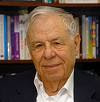"But Clinton, at her most hopeful moments, is a communitarian. When she’s asked to describe a system that works, she describes diverse people coming together around a big table to reach a consensus."
" But the Clinton plan does have the weaknesses of the communitarian approach. She creates a magic circle of companies, providers, government entities, all interlocked in a system to provide health security. But there will still be forces outside the magic circle that will be adapting and innovating in ways that might upset the plan." Hillary Clinton, From Revolution to Evolution, by David Brooks, Sept 2007. http://screwsubwalls.blogspot.com/2007/09/hillary-clinton-from-revolution-to.html
"But then she seems to imply she's not surprised that's the case down South, but given the "quality," "openness" and "communitarianism" of Iowa she is surprised that's the case in Iowa."
Quoting Clinton directly:
""I think Iowa poses a special burden, or a special obstacle to me because when you look at the numbers, how can Iowa be ranked with Mississippi? That's not what I see. That's not the quality. That's not the communitarianism, that's not the openness I see in Iowa."" http://blogs.abcnews.com/politicalpunch/2007/10/what-is-hillary.html
One response in the comments to the above post:
"Posted by: James Danley | Oct 23, 2007 4:44:37 PM
""communitarianism"???? WTH?
They really need to stop making up new words. There are a lot of people who haven't mastered their, they're and there yet. Communitarianism? Come on."
And here's a long discussion of what Hillary "means" from: http://race42008.com/2007/10/26/%E2%80%9Clet%E2%80%99s-talk-about-communitarianism%E2%80%9D/
See also:
Security and Opportunity for the Twenty-first Century, by Hillary Rodham Clinton
From Foreign Affairs, November/December 2007 http://www.foreignaffairs.org/20071101faessay86601/hillary-rodham-clinton/
security-and-opportunity-for-the-twenty-first-century.html
Here's Etzioni explaining what she means by her above article: http://www.typepad.com/t/trackback/2299520/22988412
and from the Hoover Institution: http://www.hoover.org/publications/policyreview/3585126.html
"They called themselves "New Democrats," and much of their intellectual inspiration came from a school of political theory called communitarianism. Communitarians argued that man fundamentally is not a rights-bearing, property-seeking individual, but a social being who flourishes in stable associations and communities. Communitarians criticized both liberals for placing too much faith in bureaucracy and conservatives for stressing the power of the marketplace; they claimed that bureaucracy and the marketplace together had displaced the community as the locus of American life.
"In the communitarians' view, 19th-century America offered the ideal model of community, with an active citizenry working locally to address shared concerns. Late 20th-century America, however, had witnessed the growth of big government and big business, which served to isolate and atomize Americans. The weakening of families and local community institutions, the communitarians warned, was beginning to erode fundamental elements of the American way of life.
"According to the communitarians, the growth of bureaucracy, the instability of marketplace relationships, and an explosion of self-interested behavior -- increasing litigiousness is just one indicator -- all signaled a decline of the responsibility to community that is the essence of citizenship. Communitarians reminded us that it is civil society, not the marketplace or the bureaucracy, in which Americans interact and flourish. And it is civil society, they proclaimed, in which America's increasingly inaudible moral voice lies, for here is where the institutions that shape moral character are to be formed."
Are there any other communitarian candidates in 2008?In the words of the guru Amitai Etzioni, Bush's Senior Communitarian advisor, at http://aladinrc.wrlc.org/bitstream/1961/4030/1/Democrats+represented+by+Communitarians.doc.:
"If the current lineup holds, the Democrats will be represented by a communitarian if Hillary Clinton or Barack Obama becomes the presidential candidate. Hillary’s communitarian leanings have been long known. They are especially well spelled out in her book It Takes A Village. She also delivered the keynote address at the 1996 meeting of the Communitarian Network, and met frequently with communitarian thinkers, especially William Galston.
"Barack Obama showed great familiarity with communitarian ideas and thinkers during a meeting at the home of Susan Ness and Larry Schneider. However, given that this was a private meeting, I considered it inapposite to quote what he said. Luckily, at least for communitarianism, his new book The Audacity of Hope, lays out his communitarian leanings in clear and strong terms:
If we Americans are individualistic at heart, if we instinctively chafe against a past of tribal allegiances, traditions, customs, and cases, it would be a mistake to assume that this is all we are. Our individualism has always been bound by a set of communal values, the glue upon which every healthy society depends. We value the imperatives of family and the cross-generational obligations that family implies.
We value community, the neighborliness that expresses itself through raising the bar or coaching the soccer team. We value patriotism and the obligations of citizenship, a sense of duty and sacrifice on behalf of our nation. We value a faith in something bigger than ourselves, whether that something expresses itself in formal religion or ethical precepts. And we value the constellation of behaviors that express our mutual regard for another: honesty, fairness, humility, kindness, courtesy, and compassion.
In every society (and in every individual), these twin strands- the individualistic and the communal, autonomy and solidarity- are in tension, and it has been one of the blessings of America that the circumstances of our nation’s birth allowed us to negotiate these tensions better than most. (Obama, p. 55)
There are many other communitarian passages in the book. The special importance of this one is that it shows that Obama is what is varyingly called a neo or liberal or responsive communitarian. These communitarians (among which I count myself) differ from East Asian or authoritarian communitarians in that the latter see community as trumping individual rights in the name of the greater whole, while neo communitarians see a tension between the common good and rights—which needs to be worked out case by case. But neither trumps the other conclusively. In effect, on this key point the parallelism between the Obama text and the communitarian platform is truly remarkable and very welcome indeed. The response communitarian platform, excerpted here, is very much in accord with Obama on a number of issues:
"A communitarian perspective recognizes that the preservation of individual liberty depends on the active maintenance of the institutions of civil society where citizens learn respect for others as well as self-respect; where we acquire a lively sense of our personal and civic responsibilities, along with an appreciation of our own rights and the rights of others; where we develop the skills of self-government as well as the habit of governing ourselves, and learn to serve others– not just self."
From the midwest populists at http://www.midwest-populistamerica.com/articles/threats-to-civil-liberties-arising-from-virginia-tech/:
"Modern efforts to criminalize mental dysfunction have a long history dating back to Adolf Hitler and Nazi Germany and are typically part of a broader right-wing agenda of oppression and euthanasia. But in the United States, the primary advocates of criminalization are the forcible disarmament cult and the Communitarian movement, members of which universally (and often vehemently) claim to be leftists and/or “progressives.”
"The Communitarians have argued for at least two decades that diagnosis of mental illness should instantly terminate not only all one’s civil rights but also strip one of all privileges as well, driver’s licenses included, after which the victim of such determination could then theoretically earn back the abolished rights and privileges in carefully supervised increments. Toward this end the Communitarians — who despite their leftist disguise and innocuous-sounding name are radical Skinnerian fascists of the harshest sort — are demanding creation of a national registry of mental patients. Deliberately established and maintained as a powerfully oppressive tool of social control, this roster of official pariahdom would include the names of anyone now or ever in any form of mental health treatment, regardless of the relative mildness or severity of the condition for which they are being treated. (Google “communitarians” and scroll at will for additional information.)
"Despite its huge contempt for the Constitution, the Communitarian faction is but one small portion of the forcible disarmament cult, but it is probably disproportionately powerful. Its intellectual prowess is considerable, and it often assumes a behind-the-scenes leadership role, focusing on the development of strategy, tactics and ideology. Another venue of profound Communitarian influence is the Hillary Clinton wing of the Democratic Party. It was the Communitarians who provided the Clintons and their cronies with the ideological justification for the Democratic Party’s abandonment of New Deal principles and its subsequent wholesale betrayal of the working class. The Communitarians’ grasp of Orwellian principles is also very evident in the present-day effort to redefine forcible disarmament as “gun safety” and the present tactic of concealing disarmament schemes behind apparently friendly but patently false gestures toward firearms owners."
Checked out Hillary's offical page on Health Care Reform. Not a word about communitarianism anywhere on her site. Has anyone in the media asked her to define it yet? Americans are going to elect another communitarian president without a clue what it is. What a horrible joke.
My interview with Vyzygoth went very well. It will be available at his site on Nov 12. I'll be a guest on Darren Weeks this weekend. I'll post the time tomorrow.In the meantime, we could all ponder this:
"Over the past few years, however, the Bushes and Clintons have made a kind of peace, with Clinton and the elder Bush raising $1 billion for tsunami relief in Asia and with Clinton generally muting his criticism of the current Bush White House. As these two formidable families continue to find more common ground, there are echoes not only of Hillary Rodham Clinton's communitarian book, It Takes a Village, but also of George H. W. Bush's "a thousand points of light" campaign to promote volunteerism during his presidency. And there is another connection-to Jimmy Carter's post-presidential work of fighting disease and poverty." Sometimes, It Only Takes a Bit of Goodwill By Kenneth T. Walsh, US News and World Report, Posted 9/24/06 (http://www.usnews.com/usnews/news/articles/060924/2week.htm)
And this:
"And what is the opposite of libertarianism? Libertarians would say fascism. But in the American political context, it is something infinitely milder that calls itself communitarianism. The term is not as familiar, and communitarians are far less organized as a movement than libertarians, ironically enough. But in general communitarians emphasize society rather than the individual and believe that group responsibilities (to family, community, nation, the globe) should trump individual rights." Libertarians Rising, by Michael Kinsley, Time Magazine, Oct 18,2007 (http://www.time.com/time/magazine/article/0,9171,1673265,00.html)













No comments:
Post a Comment